December 31, 2019: Authorities in the Chinese mega-city Wuhan informed the World Health Organization (WHO) about an outbreak of a previously unknown lung disease. A novel coronavirus variant was identified as the cause on January 7, 2020. On January 30, the WHO declared a public health emergency of international concern. The coronavirus pandemic spread rapidly, changing the world as we knew it. Right at the beginning of the pandemic, the ifo Institute showed that containing the number of infections and curbing the economic consequences went hand in hand – and were not conflicting goals, as many claimed.

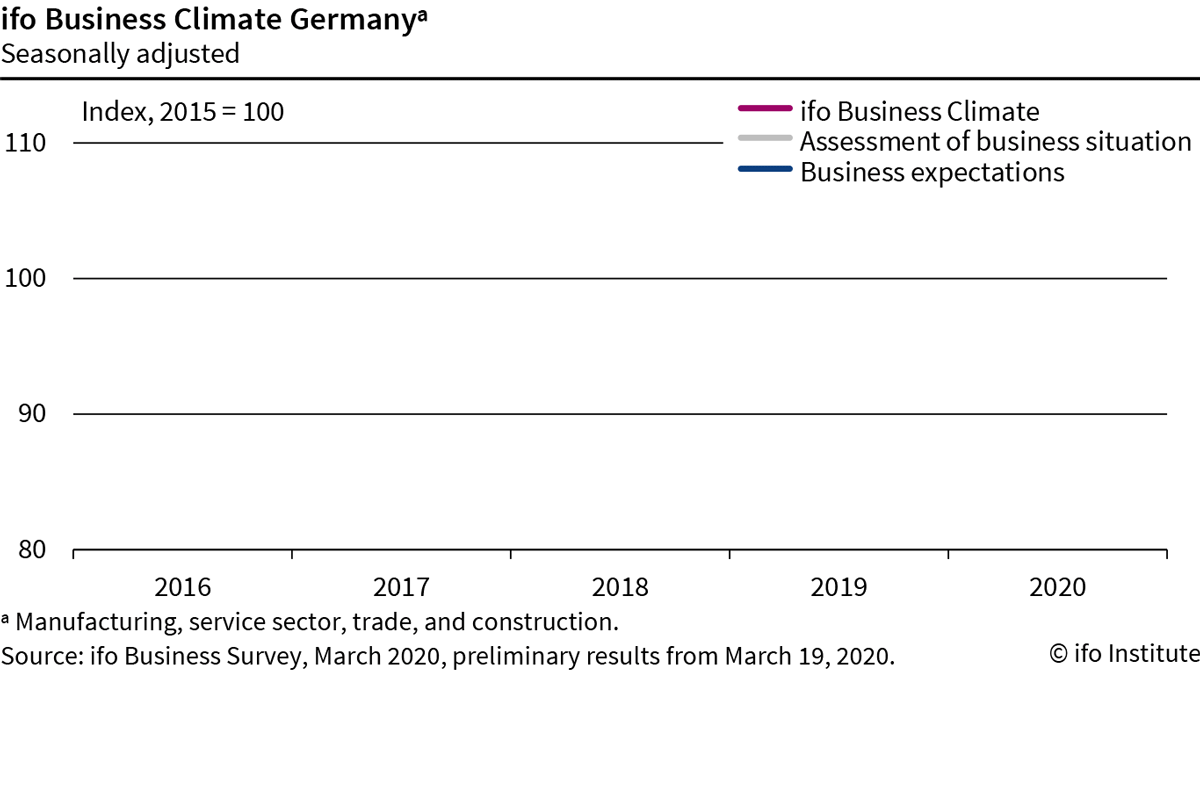
Global Economic Impact
The global economic repercussions of the coronavirus outbreak were discussed at the G20 summit in Riyadh, Saudi Arabia, on February 22, 2020. There was still hope of containing the virus’ spread and that there would only be a short-lived economic slump. Yet it was already too late. The international financial markets tumbled dramatically in February. The world stood on the brink of a severe economic crisis. For the first time in its history, the ifo Institute published an interim Business Climate Index on March 19, revealing the sharpest decline in business expectations in its 70-year history. Other indicators also plunged. In the assessment of ifo President Clemens Fuest, a global economic crisis with more dramatic consequences than the 2009 financial crisis loomed.
“It’s Serious. Take it Seriously Too!”
Angela Merkel addressed the German people with those dramatic words in a televised speech on March 18, 2020. And the calculations by the ifo Institute in February 2022 showed just how serious the pandemic’s consequences were not only for people’s lives and health, but also for prosperity. COVID caused EUR 330 billion in economic losses for Germany in 2020 and 2021, corresponding to a drop of ten percent compared to overall economic output in 2019. Before the pandemic, economic growth of 1.3 percent in each of those years had been forecast.
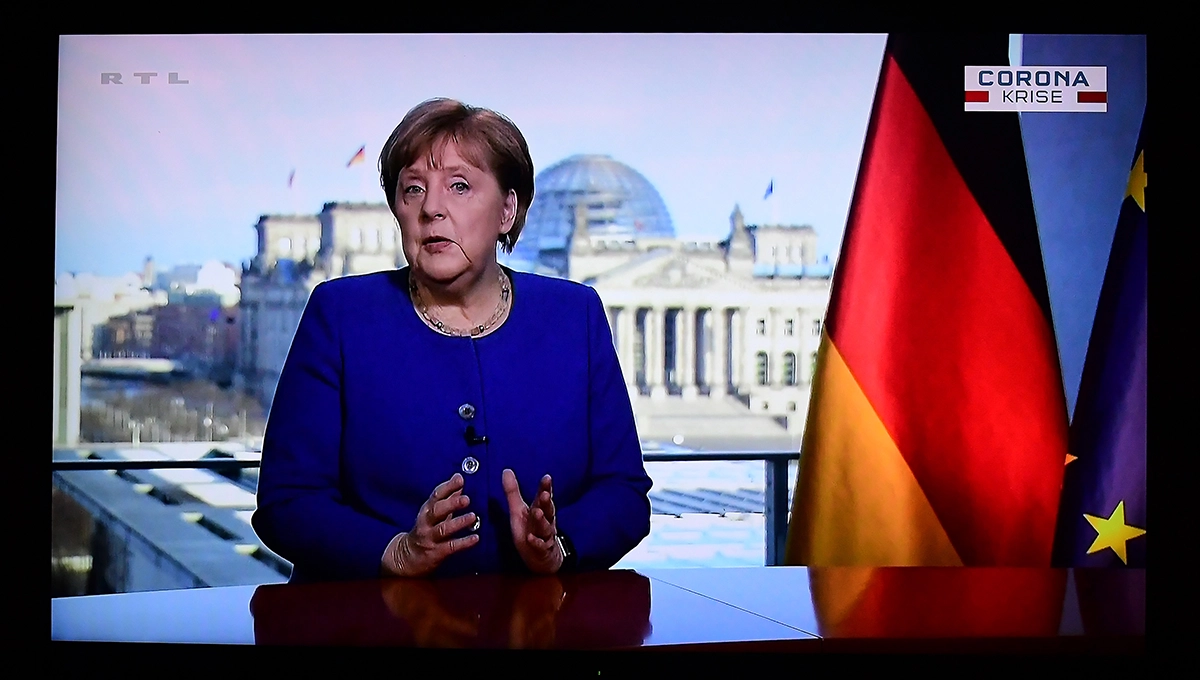
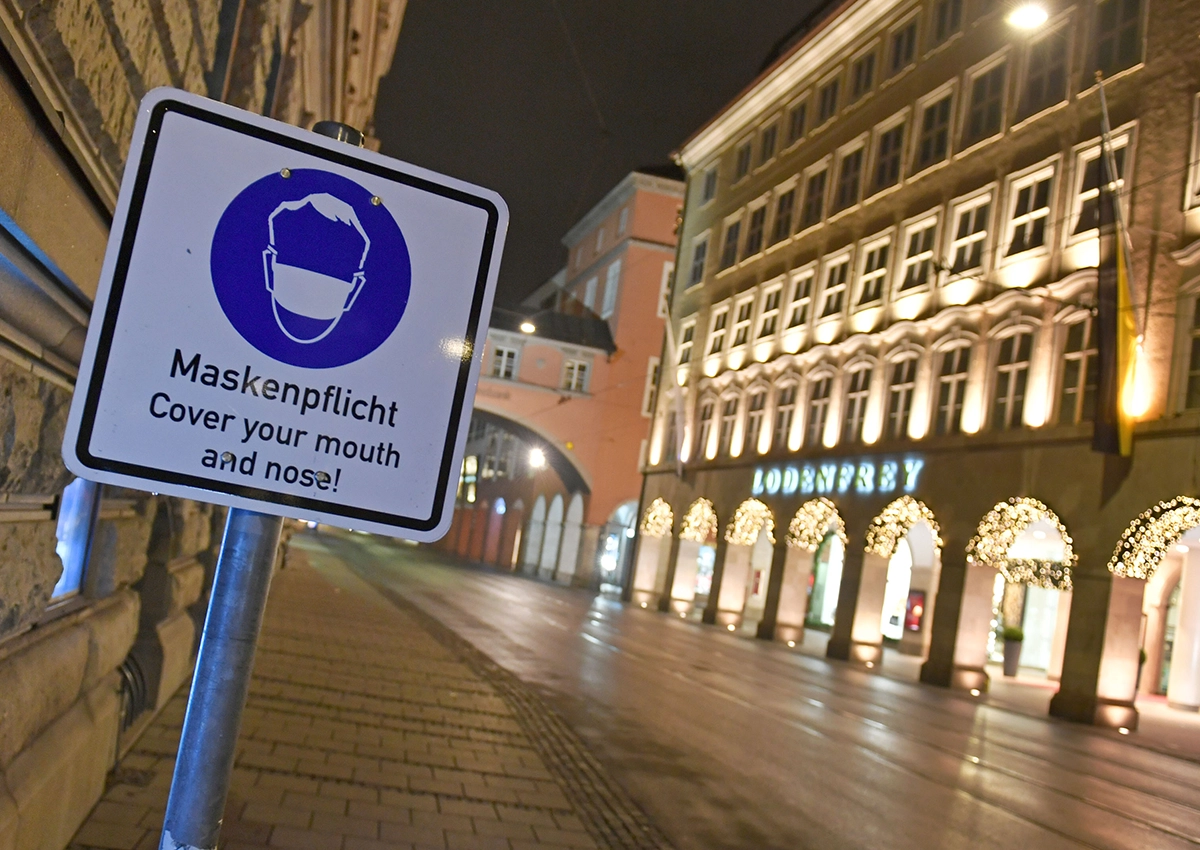
Exceptional Measures
A total of 13 researchers from various disciplines – including the virologist Melanie Brinkmann, the sociologist Heinz Bude, the internist Michael Hallek, the political scientists Maximilian Mayer and Elvira Rosert, the physicists Michael Meyer-Hermann and Matthias Schneider, and the economists Clemens Fuest and Andreas Peichl – published a joint paper on combating the pandemic in January 2021. Their main goal was to significantly reduce infections while maintaining industrial production and enabling local openings through extensive testing. The plans likewise included a testing, contact tracing and isolation strategy as well as local outbreak management. Phases necessitating rigorous measures would repeatedly be superseded by one where an easing of them was allowed. The strategy was envisaged as an infection prevention concept for the whole European Union.
Economy under Pressure
German industry in particular suffered heavy losses during the first coronavirus wave in spring 2020. That was due to the lockdowns and company closures, but also to impediments to international trade and the growing recession in countries that were important trading partners. For instance, German goods exports dropped by almost 33 percent in March and April 2020, while industrial production fell by around 25 percent.
Sectors of the economy that relied on personal contact with customers experienced a rapid slump. The ones mainly hit were brick-and-mortar retail, hospitality, arts and entertainment, and service businesses such as hairdressing salons and beauty studios. In 2020, around 3.3 million people were employed in brick-and-mortar retail, 2.4 million in hospitality, 1.3 million in arts and culture, and 0.3 million in the social service sector.

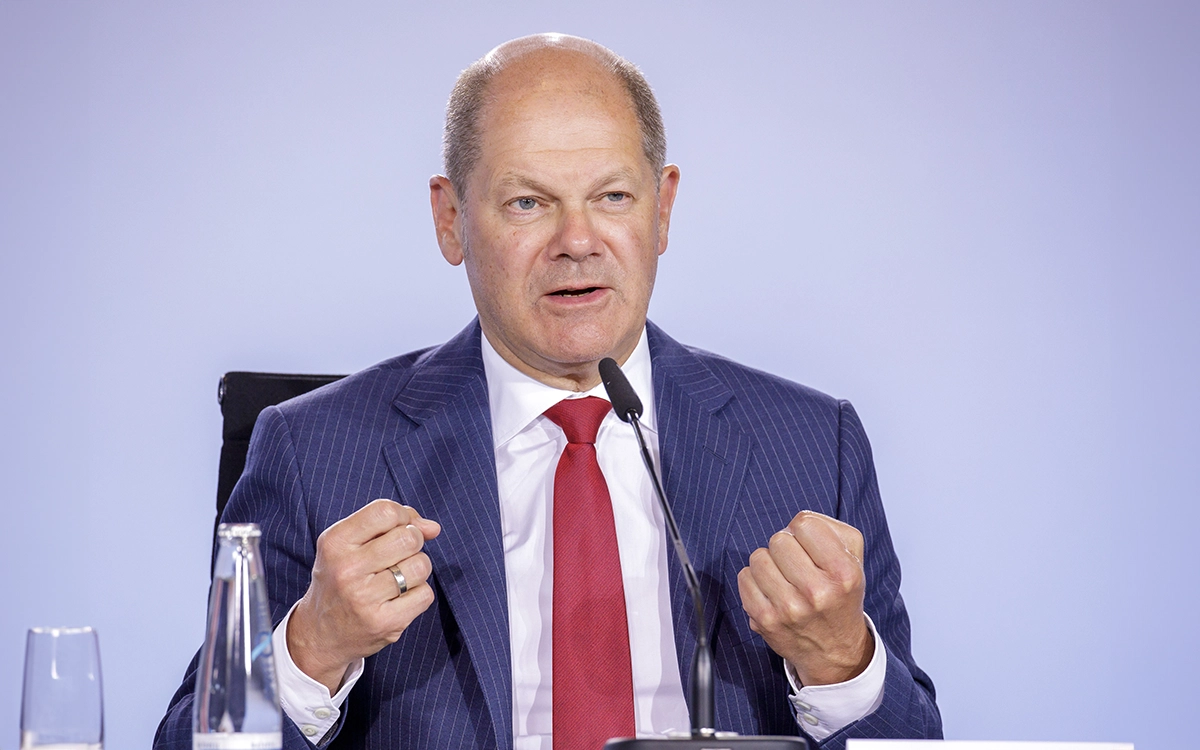
Government Aid in Germany
In view of these dramatic developments, the German government adopted comprehensive aid packages. For example, the income lost by the unprecedented figure of 10.2 million short-time workers reported by the end of April 2020 was cushioned by compensation payments. The support measures for companies were able to prevent the anticipated wave of insolvencies. In contrast to the temporary and targeted aid measures, the EUR 130 billion economic stimulus package, which Finance Minister Olaf Scholz termed “Ka-Boom” when it was passed on June 3, aimed to boost future economic growth and innovations so as to ensure competitiveness.
Pupils without School
The coronavirus crisis posed particular challenges for the education system. Surveys by the ifo Institute came to the conclusion that school closures had halved the time in which pupils were able to engage with subject matter in lessons together. Remote learning was not able to plug that gap. Moreover, the lockdown meant children spent far more time on their smartphones and computers. If they were from educationally disadvantaged families, they were particularly handicapped because they had no one at home to help them learn. Germany also had a lot of catching up to do when it came to developing digital teaching methods. In the assessment of the ifo Center for the Economics of Education, the skills not acquired during the coronavirus pandemic may have repercussions and effects on future careers and reduce lifetime earnings by around 3 percent – with the foreseeable negative impact that would have on the entire German economy.
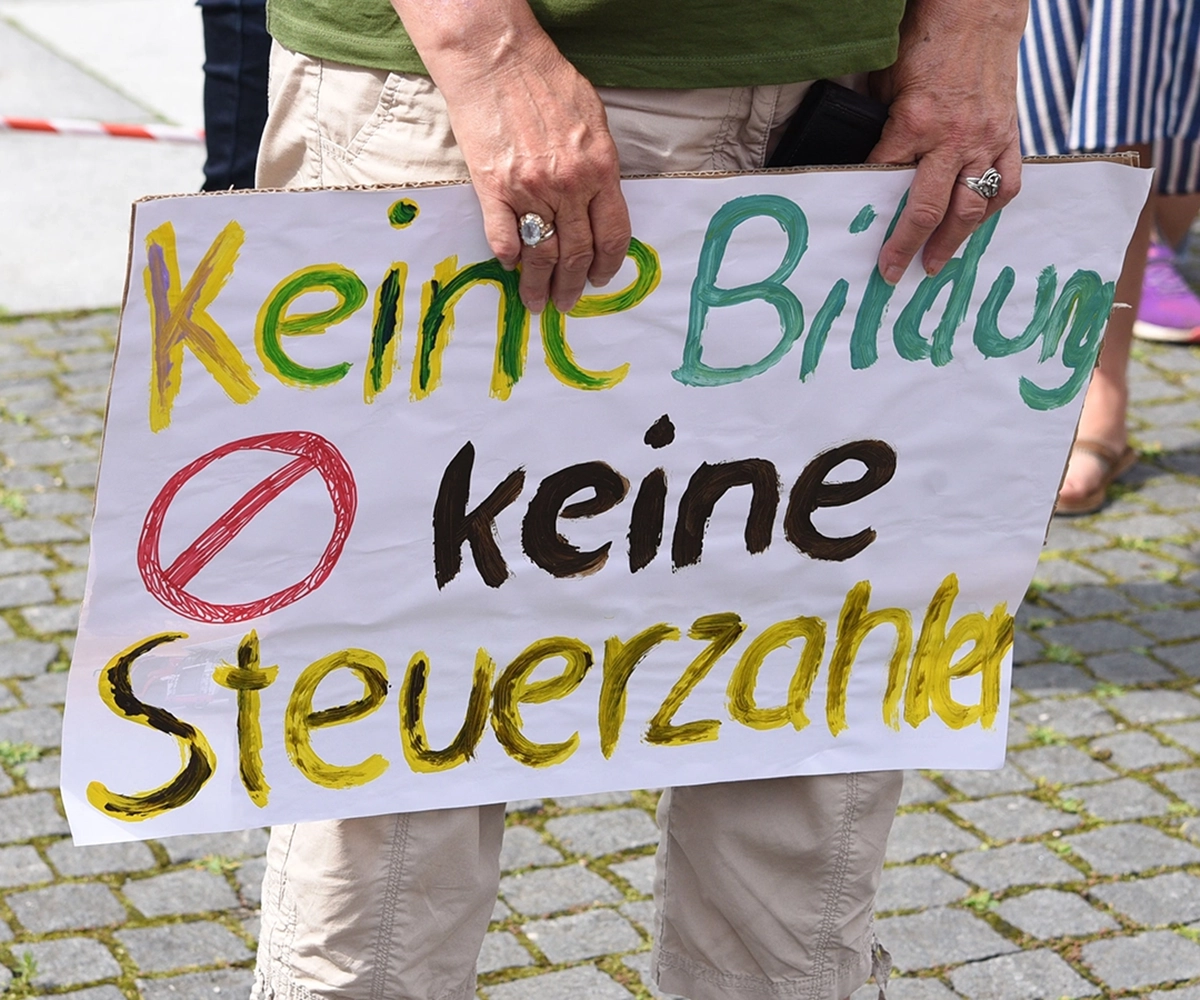
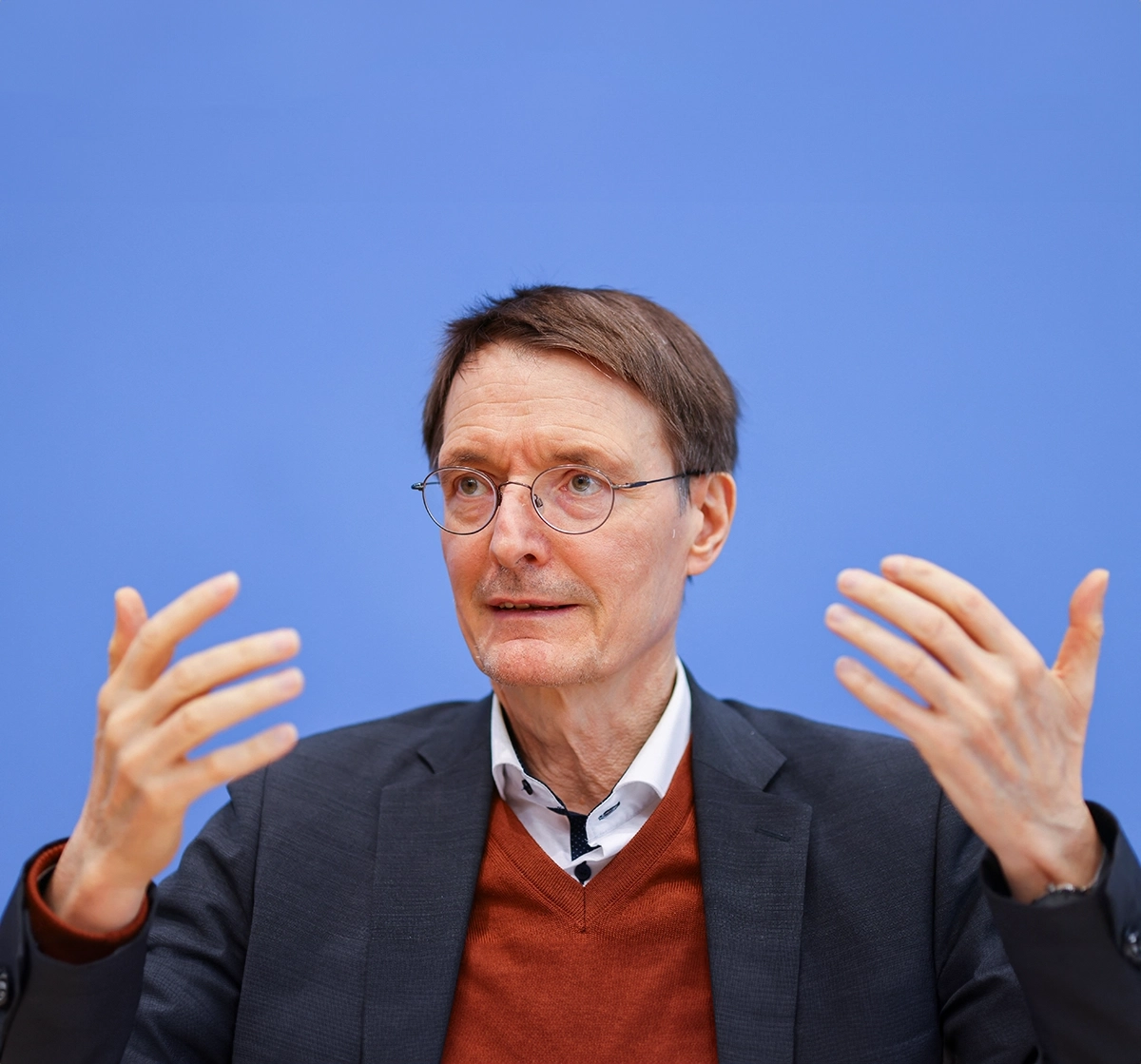
After the Crisis...
In April 2023, Minister of Health Karl Lauterbach announced the end of the coronavirus prevention measures, but the long-term consequences of the pandemic remain serious. According to WHO estimates, six to ten million people fell victim to it, while 65 million suffered or are still suffering from long COVID. The trend toward working from home has presented many companies with the challenge of pressing ahead even more resolutely with digitalizing their work processes. Everyday office life and interaction as part of work have to be redefined. Vacant office buildings and the upswing in e-commerce are changing the demands on urban infrastructure.
In many areas, however, the crisis was also seen as an opportunity to instigate important structural changes that would unleash new growth potential. Development prospects in all areas, from ecological restructuring of the economy to expansion of the European single market, meant researchers were hopeful that there would be a rapid economic recovery and a consolidation of public finances. However, these hopes were dashed when Russian troops invaded Ukraine on February 24, 2022.